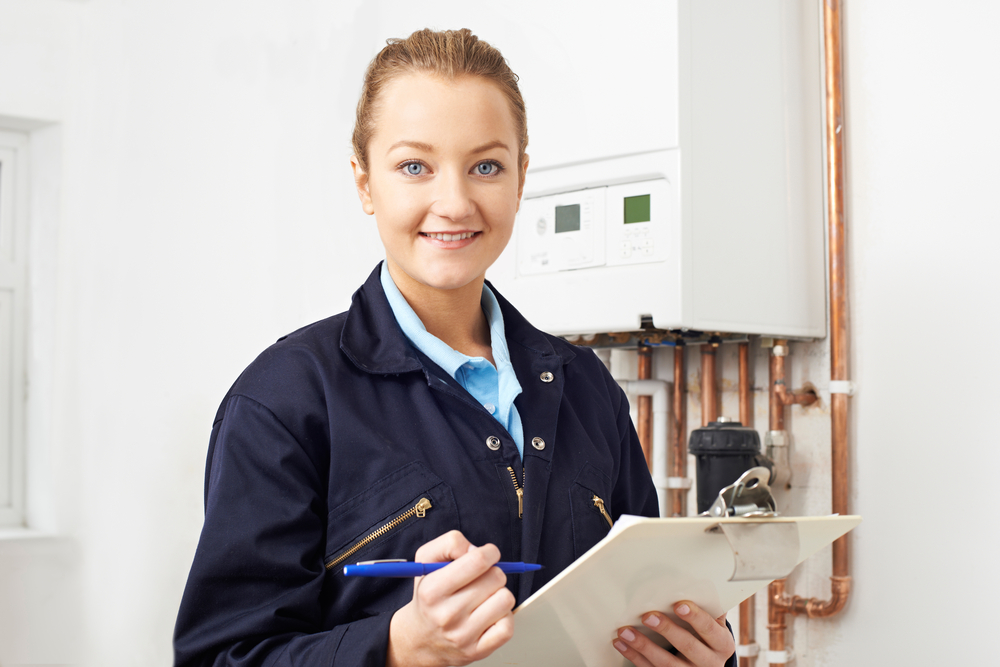Winter season is approaching again, and necessary preparations must be made by its arrival. Several homeowners depend on gas heaters to make the cold and harsh weather bearable. This is because the appliance and its fuel are affordable in many parts of the world, but that doesn’t mean it doesn’t carry its own risks.
Risks Associated with Gas Heaters
However, gas heaters are dangerous to use in case of carelessness. If your gas heater isn’t set up correctly, gas leaks can occur, which can cause suffocation. As the gas they use is highly flammable, a small spark can create a big explosion to destroy your home.
Another risk is that your gas heater can emit toxic gases such as carbon monoxide and nitrogen dioxide into your room either because of improper servicing or the gas burner got damaged. If gas heaters aren’t connected to proper ventilation systems, these gases can spread throughout your home and deteriorate the health of all household members.
According to the CDC’s report released in 2014, an average of 420 deaths occurred yearly in the time period 1999-2010 due to unintentional carbon monoxide poisoning. To keep yourself and your family members safe from such tragedies, you must know the danger signs and precautionary measures while dealing with gas heaters. Below is a comprehensive guide.
1) Indoor Air Pollution Due to Gas Heating
Do you feel dizzy when sitting near your gas heater? Chances are that it’s releasing toxic gases into your room, polluting your indoor environment. A gas heater gives heat by burning natural gas or LPG.
If the natural gas isn’t combusted properly, harmful pollutants are released that can bring adverse effects to your health. These pollutants are carbon monoxide and nitrogen dioxide.
A. Carbon Monoxide
Carbon monoxide is a colourless and odourless poisonous gas thus frequently called a silent killer. As this gas is less dense, it spreads throughout the house easily. When in low concentration, it can cause headaches, nausea, dizziness, and even confusion.
People facing health complications such as asthma, chronic illnesses (heart or lung diseases), etc., are at greater risk of facing severe effects. Pregnant women are more vulnerable as they can lose their babies due to prolonged exposure.
Symptoms become severe with longer exposure, which includes vomiting, fainting, brain damage, irregular heartbeat, etc. A person can die within 5 minutes of exposure to a high concentration of carbon monoxide.
B. Nitrogen Dioxide
Another by product produced by a gas heater is nitrogen dioxide gas. This harmful gas has a reddish-brown colour and gives off a sweet-sharp smell. Its symptoms include irritation in the respiratory tract, eyes, nose, and throat.
Exposure to NO2 for longer periods causes greater impacts on the respiratory system.
- People suffering from asthma may become prone to lung infections or asthma attacks.
- Longer exposure to higher concentrations of NO2 can result in a person getting acute or chronic bronchitis.
- Children are vulnerable to attaining respiratory infections.
- Inflammation of the airways.
C. Prevention
If you feel any of the above-mentioned symptoms while the gas heater is running, follow the below-mentioned necessary precautions:
- Turn the gas heater off and open the windows of your house immediately.
- Evacuate your loved ones, pets, and staff from the premises.
- Call or rush to a nearby hospital to get examined for carbon monoxide or nitrogen dioxide poisoning.
- Get your gas heater serviced by a licensed gas safety engineer.
- Check for blockage in ventilation pipes.
Look for the following signs to recognize inappropriate venting of a gas heater:
- All members of the household feel sick when the gas heater is running.
- People feel flu-like symptoms diminishing when they move out of the house.
- Excess condensation on windows indoors.
2) Leakage of LPG or Natural Gas
Gas heaters run on LPG or Natural gas, both of which smell like rotten eggs. If you notice this kind of smell while using your gas heater, it indicates a gas leak. Gas leaks are responsible for numerous deaths due to suffocation or explosions. You must make sure to switch off the gas supply in case of leakage.
A. Deadly Fires or Explosions
As you may know, both LPG and Natural gas are highly flammable. A small spark can cause the gas to ignite, giving us fire and heat. However, if the same gas leaks into any one of your rooms, that can result in harmful consequences. The gas can easily spread across rooms, and then turning on or off a switch can cause those rooms to catch fire or may even cause an explosion.
B. Asphyxia Or Death from Suffocation
Gas leaks can be fatal if high concentrations of LPG spread into all parts of the house. This can cause members of the house to suffocate due to a lack of oxygen.
Breathing in high concentrations of this gas can cause asphyxia (lack of oxygen). It causes difficulty breathing, slow pulse rate, and even losing consciousness. If left to worsen can result in death.
C. Prevention
If a gas leak occurs in your home, remember not to turn on or off any kind of electrical switches. Then follow the precautionary measures below.
- Switch off the gas supply from your gas meter or the gas cylinder.
- Turn off your gas heater.
- Open all doors and windows of your house.
- Evacuate all household members.
- Call Emergency services if anyone is having symptoms of asphyxia.
Schedule an Appointment with a Gas Safety Engineer to prevent gas leakage and related hazards. A professional gas safety engineer can inspect your appliances for safety & diagnose problems.
Getting it serviced annually will help you to safeguard household members from health hazards such as asphyxia or carbon monoxide poisoning. A gas safety check cost ranges from £30.00 to £150.00 depending on the number of gas heaters used.
Ensure that you use a gas heater in an area of proper ventilation. If the ventilation system of your house is blocked, get it serviced by a professional.
You’re Ready to Make Your Home Safe from Gas Hazards
It’s important for people to know the risks and hazards of gas heating to protect themselves and others from mishaps. If you notice any gas leakage, get it investigated immediately and check for symptoms of long-term gas exposure. The above-mentioned precautionary measures discuss how you can watch out for these health hazards and take the necessary precautions to keep your family safe.






